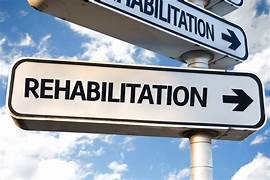
In the world of high achievers—CEOs, entrepreneurs, and corporate leaders—success often comes with a hidden burden. Behind the polished public image and professional accolades, many executives quietly battle stress, burnout, anxiety, or substance abuse. For these individuals, traditional rehabilitation programs may not meet their unique needs. That’s where exclusive rehab centers for high achievers step in, offering tailored, confidential treatment programs specifically designed to support the complex lives of top-level professionals.
Why High Achievers Need Specialized Treatment
Leaders and high performers face immense pressure every day. They carry the weight of company success, financial performance, investor expectations, and team management on their shoulders. These demands can result in chronic stress and unhealthy coping mechanisms—such as alcohol, prescription drugs, or even illicit substances—to maintain performance or escape the pressure.
Additionally, CEOs and executives often experience isolation. As the ones expected to always be in control, they may feel unable to show vulnerability or ask for help. This makes the path to recovery even more complicated. Standard rehab centers, with rigid schedules and group-based treatments, often fail to address the unique needs of this elite group.
What Sets Exclusive Rehab Programs Apart
Exclusive rehab for high achievers offers a different level of care—one that combines clinical excellence with privacy, personalization, and flexibility. These programs are designed to ensure that recovery doesn’t mean stepping away from responsibilities or sacrificing confidentiality.
Key features include:
- Confidentiality and Discretion: Privacy is a cornerstone of executive rehab. Centers are often located in secluded, luxurious settings with private rooms, secure communication channels, and strict non-disclosure agreements to protect clients’ identities.
- Tailored Treatment Plans: High achievers receive individualized care plans that address both the symptoms of addiction and the underlying causes—such as work-related stress, trauma, or perfectionism. Treatment may include one-on-one therapy, cognitive-behavioral therapy (CBT), mindfulness, and holistic modalities like yoga, nutrition, and physical training.
- Work Integration: Unlike traditional rehab, exclusive programs often allow clients to continue working during their stay. Facilities provide private offices, Wi-Fi, and scheduled time for business obligations, ensuring that recovery doesn’t come at the cost of company operations.
- Leadership Coaching and Stress Management: Beyond addiction recovery, executive programs help clients develop healthier leadership strategies, build resilience, and find balance between ambition and well-being.
A Healing Environment That Matches Their Lifestyle
The environments of these exclusive rehabs are as refined as their clientele. From oceanfront villas to serene mountain lodges, they offer luxury amenities such as gourmet meals, spa services, fitness centers, and personalized wellness plans. This comfortable, upscale setting helps executives focus fully on healing without the distractions or discomfort often associated with institutional care.
Long-Term Success Through Aftercare
Recovery doesn’t end when treatment does. Exclusive rehab programs provide long-term aftercare, including virtual therapy sessions, sober coaching, and support groups tailored to professionals. These services help high achievers maintain sobriety while navigating the demands of leadership.
Conclusion
For CEOs, entrepreneurs, and other high performers, exclusive rehab offers a lifeline—an opportunity to recover in a safe, supportive, and professionally accommodating environment. Tailored treatment not only helps them overcome addiction or mental health challenges but also empowers them to return to their roles with renewed clarity, strength, and purpose.








